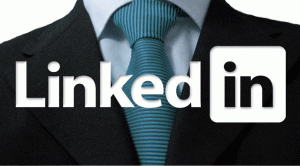#BestofFSCBlog : #JobSearch -Not Getting Job Interviews? Your Resume Is The Problem. ATS(AI) Software Robots Deletes 75% of Resumes When you Apply Online.
Cathy is a 59-year-old Hotel Sales Director who has had a vert successful career until COVID hit and she lost her job. She has been job hunting for seven months and has applied to over 300 jobs. “No one is calling. No interviews, not even one email or inquiry. I’m so frustrated. Is the job market really that impossible right now?”
“I have to wonder what I’m doing wrong,” says Tom, a Baby Boomer IT executive who contacted me about resume help. “I have sent out so many resumes – literally over 100—and I haven’t gotten one interview. Any recruiters that email me are looking at work I did two jobs ago as a project manager, but I never get any interviews for current my job level. Help!”
Although it is a difficult job market, there are still jobs available, and more positions are opening up every day. If you aren’t getting any response to your resume, no matter who helped you write it, you have to wonder if something is wrong with your resume.
The first and most important thing is to be sure that you are applying for the correct job opportunities and are a good fit for those opportunities. That you have the specific skillset and the experience the employer is asking for. You are not “just trying to get your foot in the door,” which is a very old-fashioned strategy that does not work anymore. Recruiters complain that too many people are applying for jobs that they aren’t qualified to perform. This approach will not work when you have such a competitive marketplace. Assuming that you are applying for jobs at the correct level, you have to analyze your resume closely and ensure you get the next two items right.
Like this Article? Share It! You now can easily enjoy/follow/share Today our Award-Winning Articles/Blogs with Now Over 2.5 Million Growing Participates Worldwide in our various Social Media formats below:
LinkedIn: https://www.linkedin.com/in/chris-g-laughter-b46389198/
Twitter: Follow us @ firstsunllc
Best Daily Choice: Follow the Best of FSC Career Articles/Blogs @
https://twitter.com/search?q=bestoffscblog&src=typeahead_click
Question: Want the ‘the best/current articles/blogs on the web’ on Job Search, Resume, Advancing/Changing your Career, or simply Managing People?
Answer: Simply go to our FSC Career Blog below & Type(#Jobsearch, #Resume, or #Networking) in Blog Search: https://www.firstsun.com/fsc-career-blog/
What Skill Sets Do You have to be ‘Sharpened’ ?
Article continued …
Employers want outcomes
The number one mistake that most job hunters make is that they do not create a resume full of accomplishments and results. Instead they focus on vague, boring job descriptions or take the job listing and copy the content and paste it into their resume. These approaches do not work. Employers want to see results. They want to know the level of success that you have delivered in your previous jobs. So vague statements that don’t have any quantification won’t be effective at all.
The formula to follow is MY ACTIONS = My RESULTS
Whenever possible, use numbers, statistics, money or time saved, or note the dollars added to the company’s bottomline.
Here are some examples:
· Streamlined the company’s sales process from start through installation. Improved processes. Implemented new sales training and changed suppliers. Results tripled sales within twelve months from $10M to $30M.
· Spearheaded the moving of company facilities from one expensive location to three inexpensive locations including warehouses. Created strategic plan. Negotiated new leases. Results decreased rent, reduced labor, and transportation costs. Total savings of $7M.
· Drove the turnaround of the department during acquisition. Restructured organization reducing team members by 35% plus improved processes and implemented new direction. Results increased revenues by 13% within nine months.
· Developed the company’s marketing strategy and execution launching a new product into 13 countries.
· Led the team project involving a complex redesign of a complex electrical system. Collaborated with engineering, manufacturing, and factory supervisors. Oversaw the implementation. Results saved $2.5M.
· Created the training class for a new change management course. Taught class to over 300 managers.
· Negotiated terms and pricing contract with the vendor. Results saved $100,000.
· Established a new service program to improve the reach of the organization. Results delivered a 27% increase in aiding women and children.
Not everything is quantitative. When creating a new program or service, or you make an innovation that in and of itself is the accomplishment.
ATS blocks 75% of resumes
Over 95% of Fortune 500 Employers use an applicant tracking system called ATS software, that uses robots to review the resume and streamline the process. According to a study by job search firm Preptel, 75%of all resumes are never seen by a real human being. Instead, they are filtered out by ATS software robots. That’s right; these systems delete 75% of resumes when you apply online. That means if 300 resumes are submitted, over 225 are deleted and never seen by human eyes.
WHY?
CNBC reported that out of 1,000 resumes analyzed that were submitted through an ATS, 43% were sent in an incompatible file type. That means not even the computer saw them. You need to ensure that you are using a WORD file and which seems to be universally accepted. Also, avoid using graphics, tables, columns, text boxes, headers, or footers. And of course, you must include the keywords that are specific for performing your job. (For more specifics, read Employers Ignoring Your Resume? 5 Mistakes To Avoid )
To get a different result – employers calling you for interviews – you must change what you have been doing. Improving your resume is a great way to increase your odds of getting hired.
Forbes.com | October 20, 2020 | Robin Ryan











